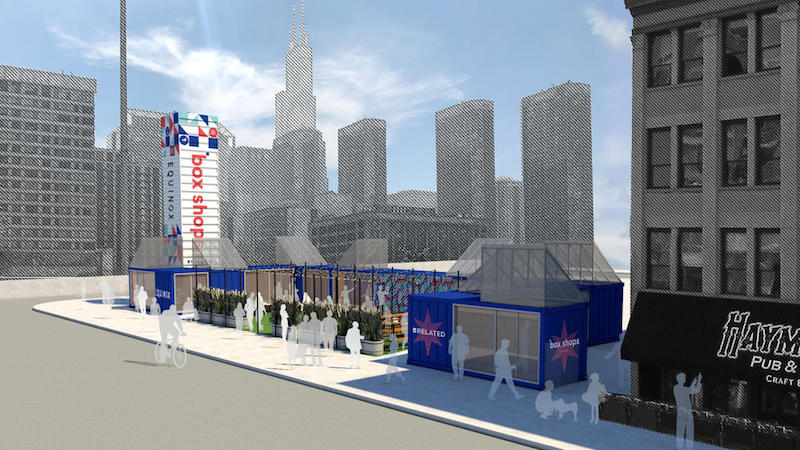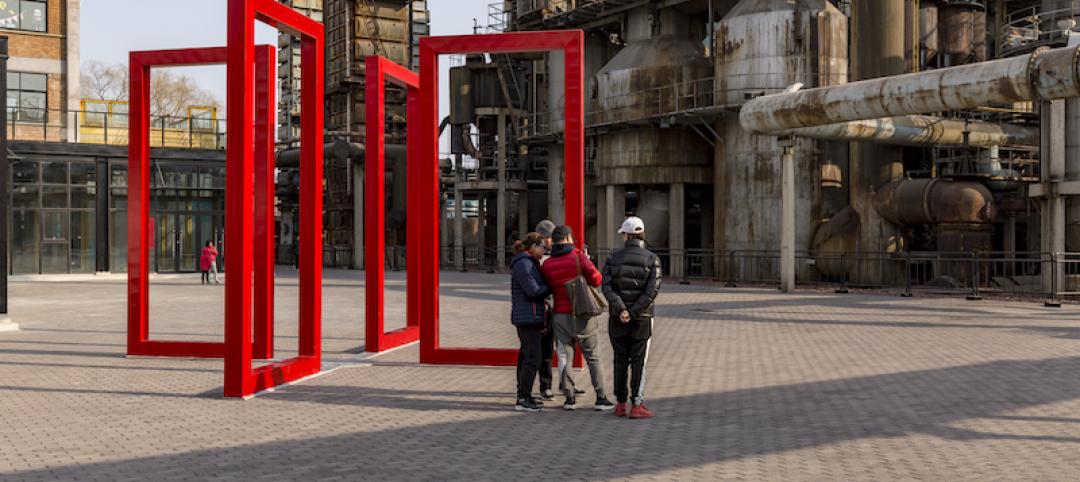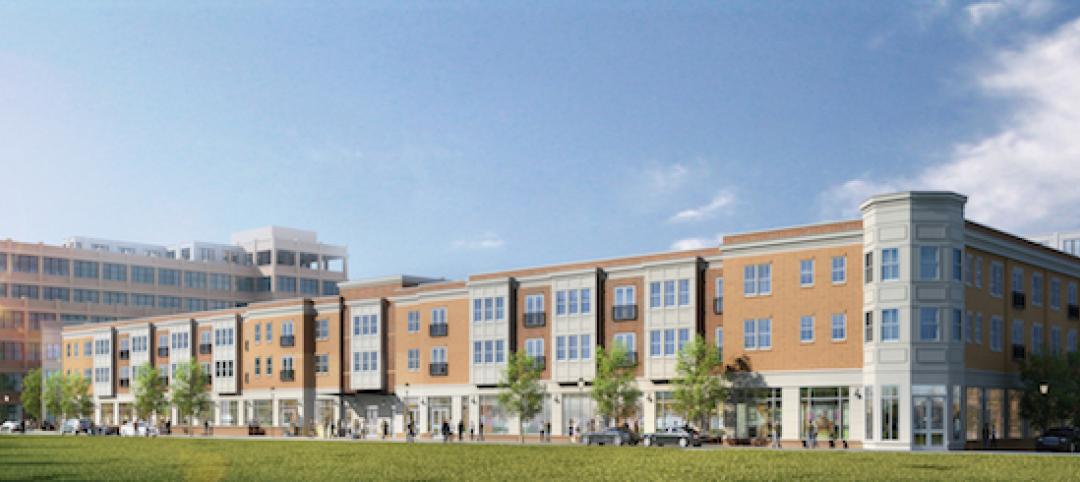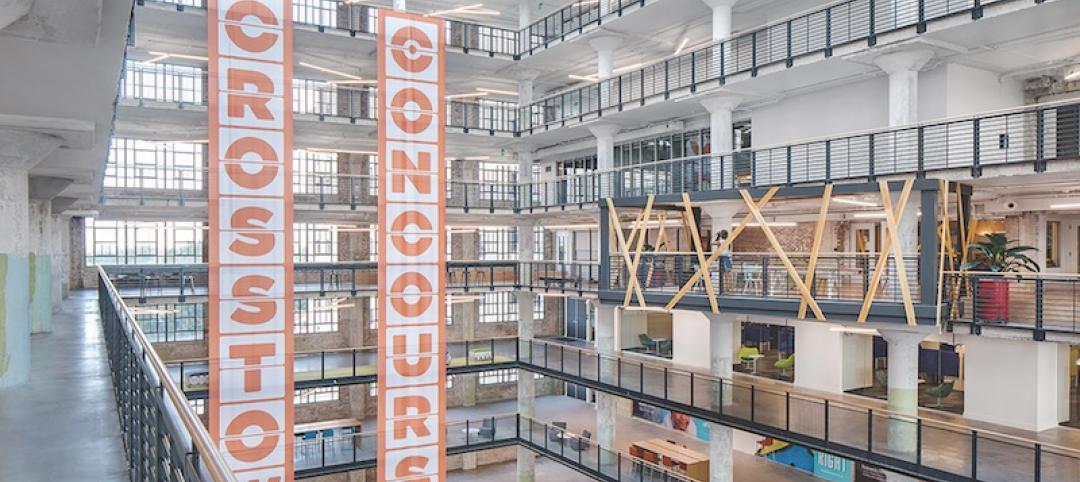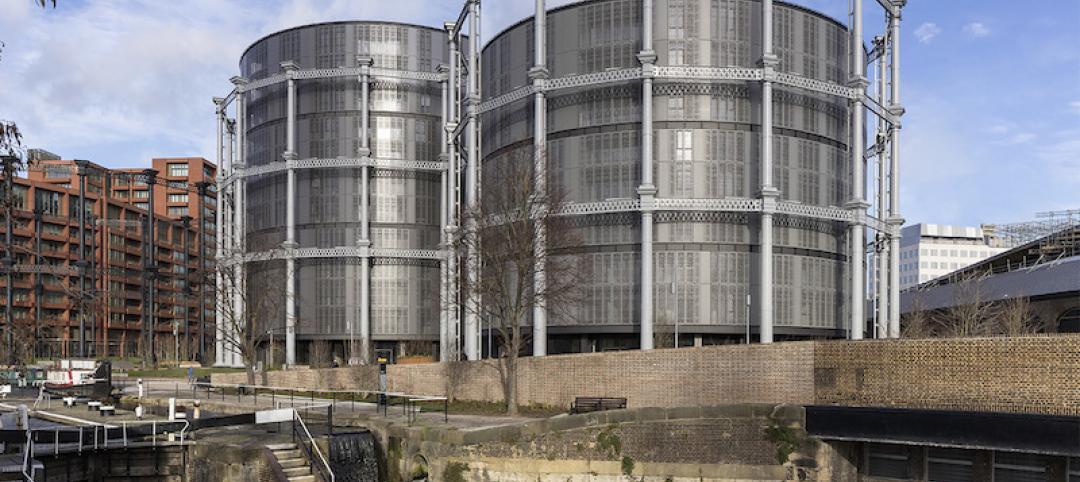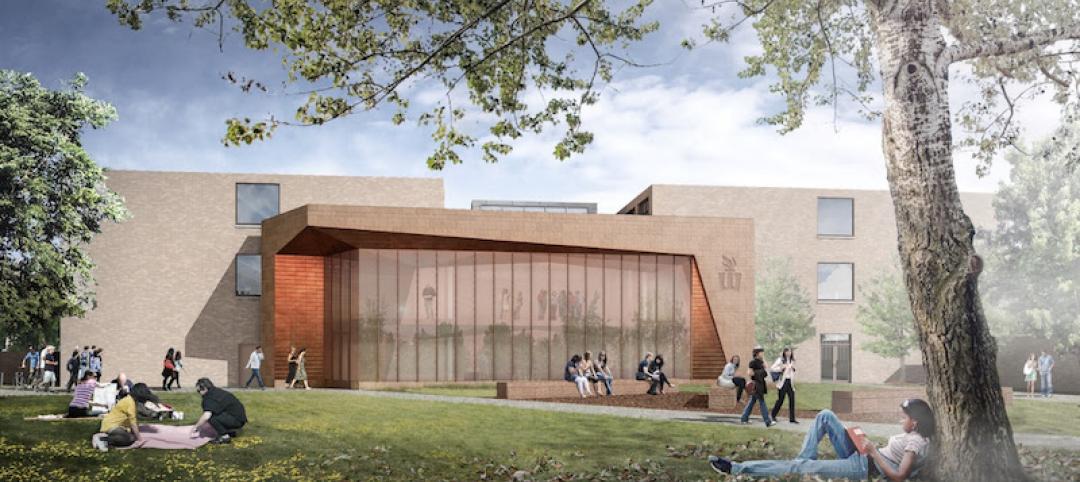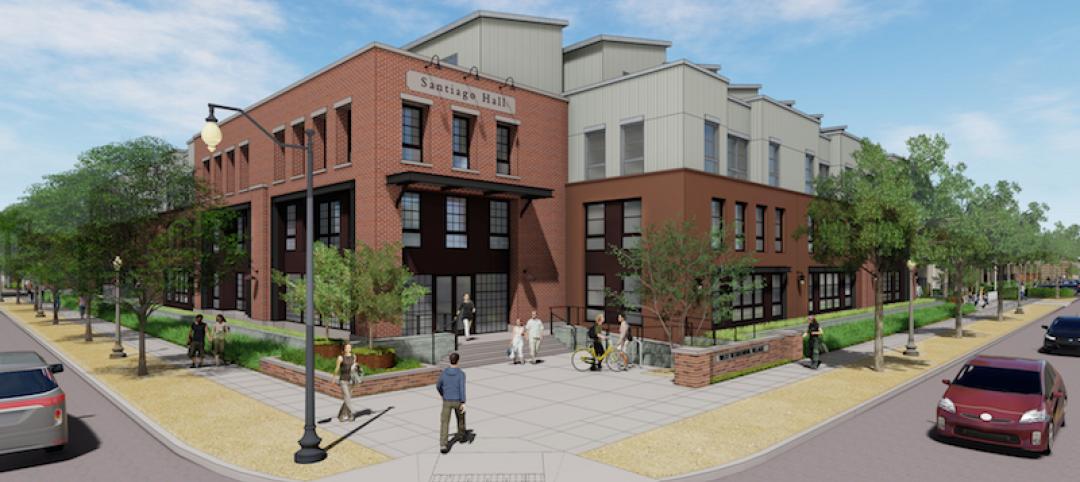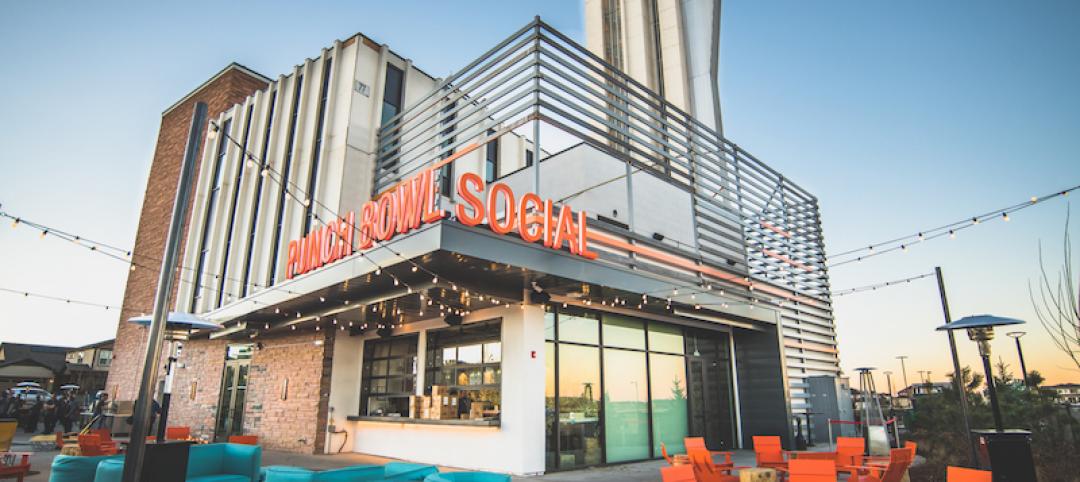In not too long, a vacant site at 725 W. Randolph St. in Chicago will be home to a 58-story mixed-use tower that will include 370 apartments and a 165-room hotel. The site will not just be an unsightly vacant lot until construction commences, however, as commercial real estate developer Related Midwest plans to open a pop-up market created entirely from repurposed shipping containers, the Chicago Tribune reports.
Dubbed Box Shops by Related, the market will feature six 160-sf shops, one 320-sf shop, and one 40-foot-long shipping container that will be tipped vertically and used as signage. The market will be open seven days a week from 10 AM to 9 PM and feature stores such as Taylor Street Soaps, RefuSHE, High End Junkie, and the Haymarket Pub & Brewery, according to the Box Shops by Related website.
See Also: Austin’s first indoor shopping mall becomes Austin Community College’s new digital media center
The repurposed containers, which are being created in collaboration with the Chicago-based architecture firm Latent Design and their Boombox concept, will include lighting, heat, air conditioning, skylights, and wireless internet. It typically takes about $25,000 to $50,000 to retrofit one container. Box Shops by Related will be Latent Design/Boombox’s first multi-container location.
If the Box Shops are successful at the Randolph location, Related Midwest plans to move them to other sites owned by the company around the city while the permanent projects are developed.
Related Stories
Adaptive Reuse | May 7, 2018
A decade after it debuted, Beijing’s 798 Arts District is still a work in progress
China’s third-most-popular tourist attraction remains a magnet for creative tenants.
Adaptive Reuse | Apr 26, 2018
Edison Lofts building is New Jersey’s largest non-waterfront adaptive reuse project
Minno & Wasko Architects & Planners designed the building.
Adaptive Reuse | Mar 8, 2018
LEED Platinum for Memphis industrial reuse project
Memphis-based engineering firm OGCB and contractor Grinder Tabor Grinder led the removal of 54 million lb of concrete and 10 million lb of metal.
Multifamily Housing | Feb 27, 2018
Victorian era gasholders become modern residences in London
The new residences are part of the King’s Cross redevelopment scheme.
Education Facilities | Jan 8, 2018
Three former school buildings are repurposed to create mini-campus for teacher education
The $25.3 million project is currently under construction on the Winona State University campus.
Adaptive Reuse | Jan 4, 2018
Student housing development on Chapman University campus includes adaptive reuse of 1918 packing house
The Packing House was originally built for the Santiago Orange Growers Association.
Adaptive Reuse | Dec 11, 2017
Detroit's economic improvement a boon to its hotel sector
Detroit Foundation, a stylish boutique hotel, is the Motor City’s newest hospitality venue.
Adaptive Reuse | Nov 29, 2017
‘Eat-ertainment’ establishment grants abandoned air traffic control building a second life
The concept’s design reflects the golden age of flight.
Adaptive Reuse | Nov 10, 2017
Austin’s first indoor shopping mall becomes Austin Community College’s new digital media center
Renovation of the defunct mall represents Phase 2 of ACC’s $100 million adaptive reuse project.
Adaptive Reuse | Oct 23, 2017
A tableware storage space is reset to accommodate an investment firm’s headquarters in Raleigh, N.C.
This adaptive reuse establishes more direct visual and physical connections to a growing city.


